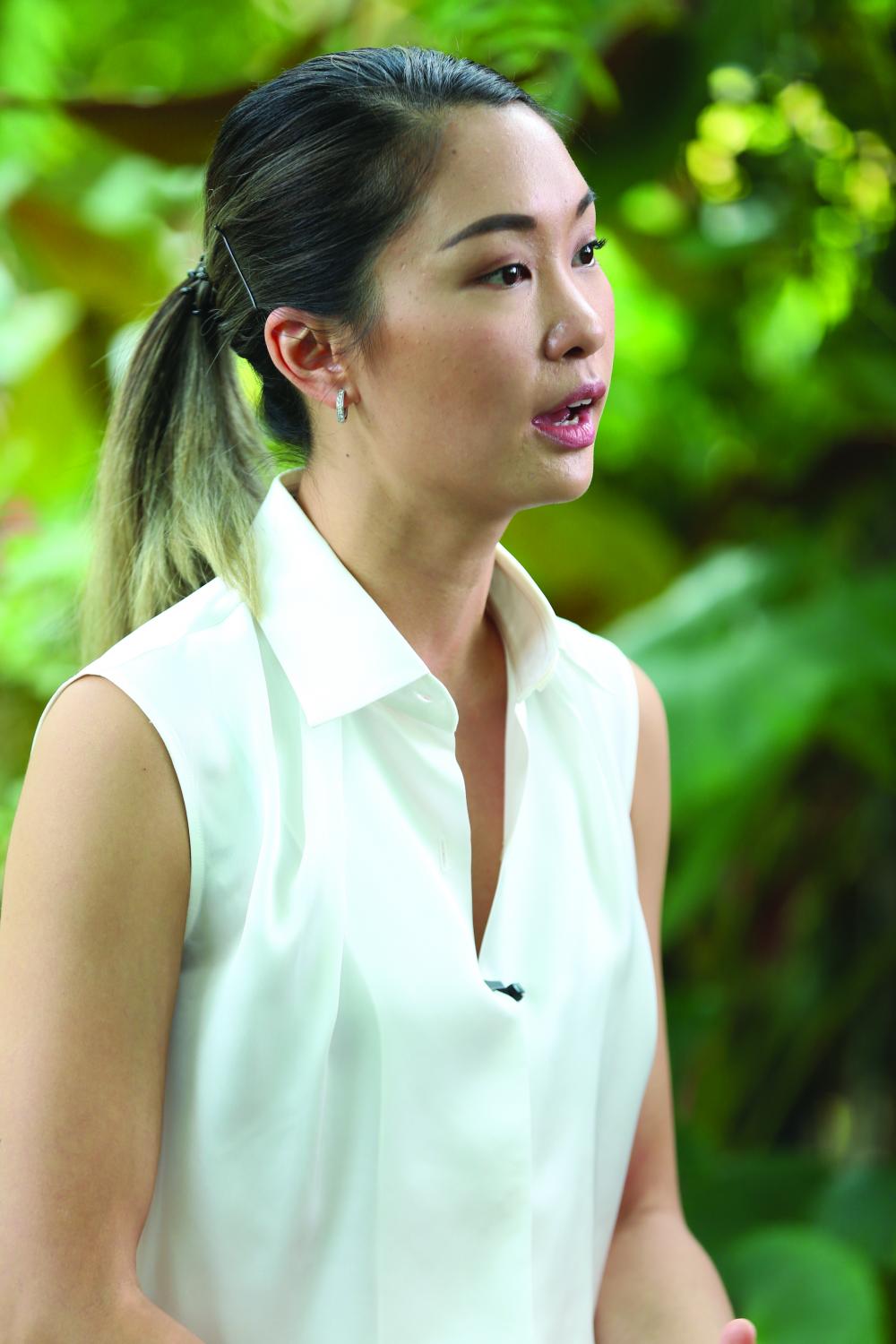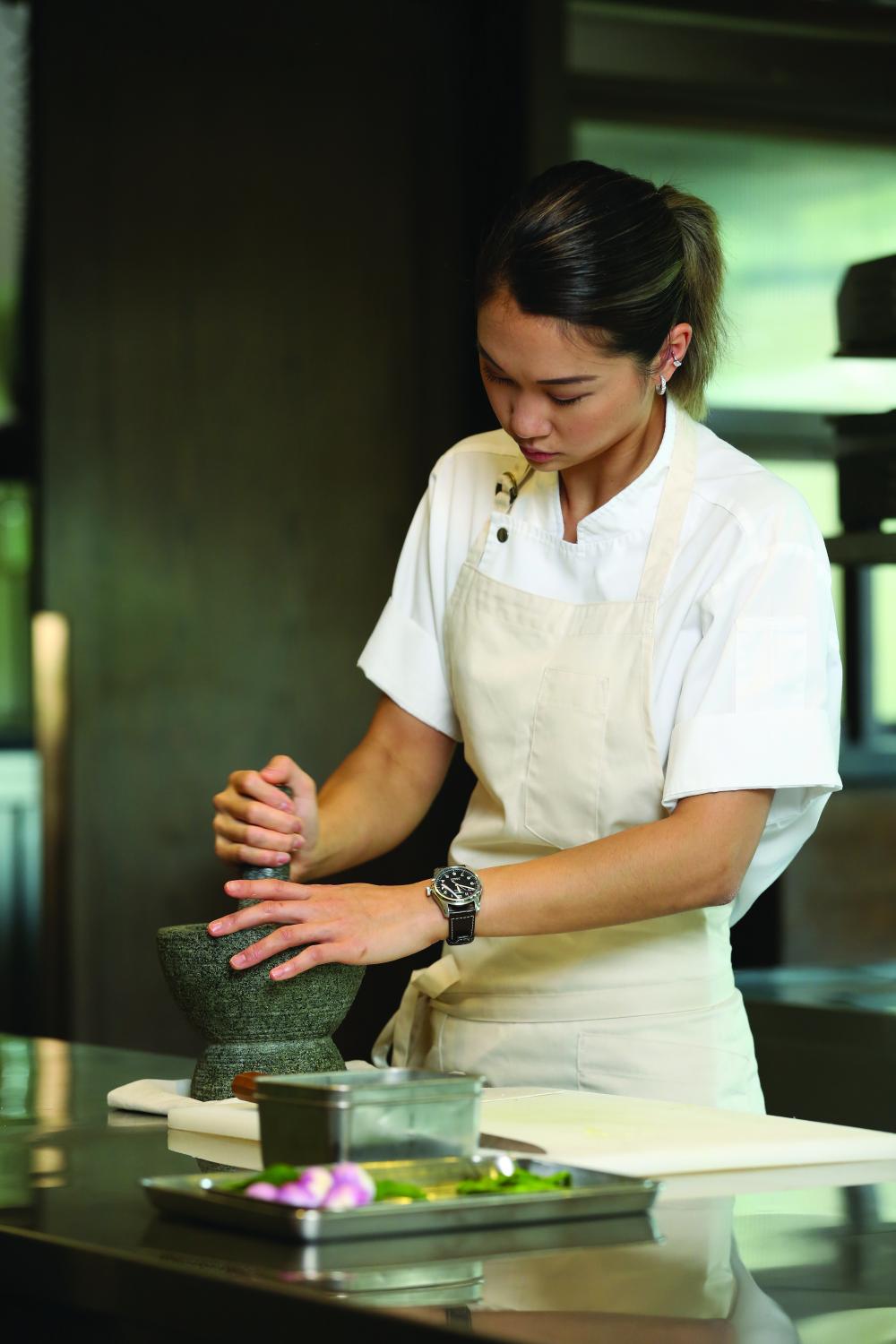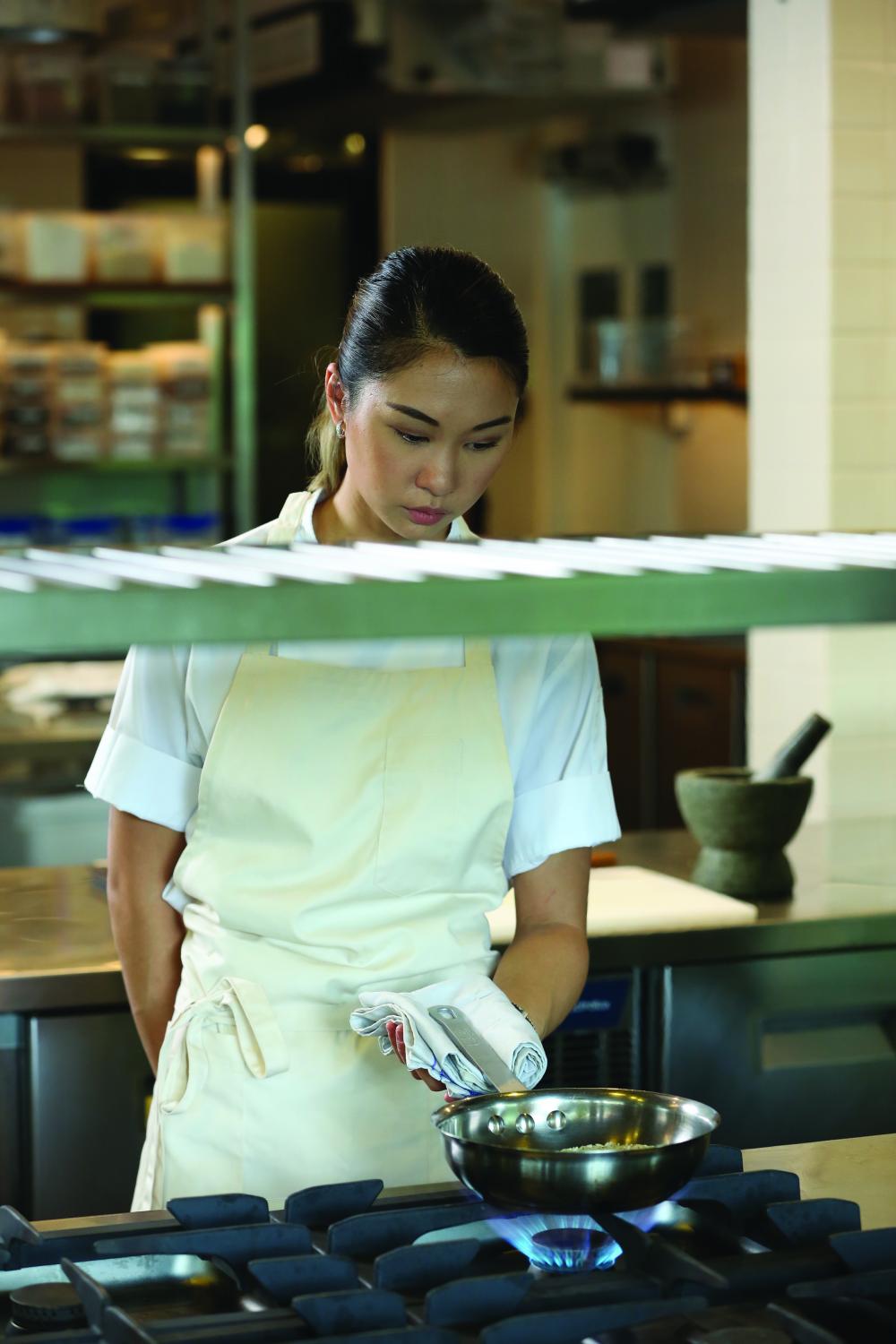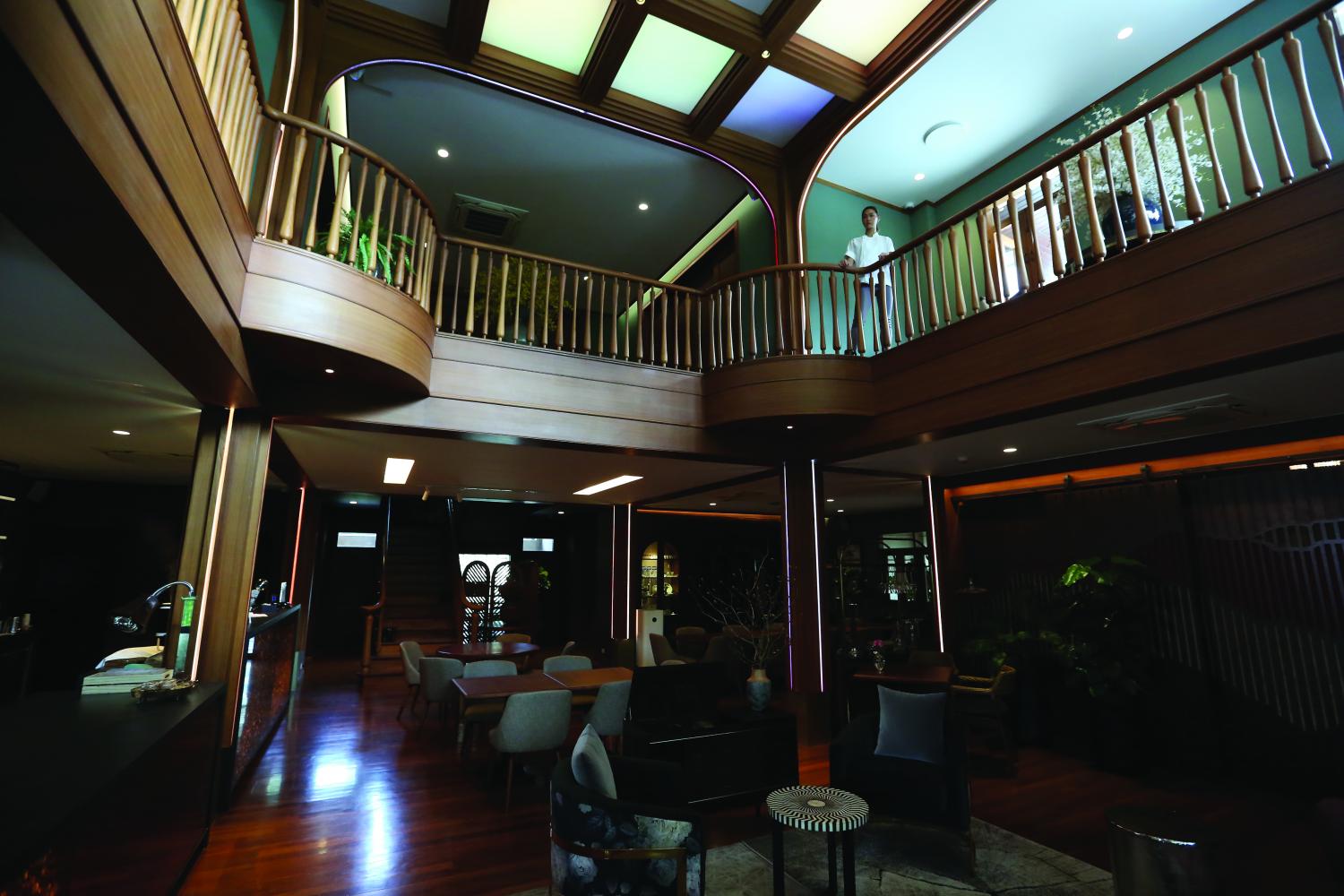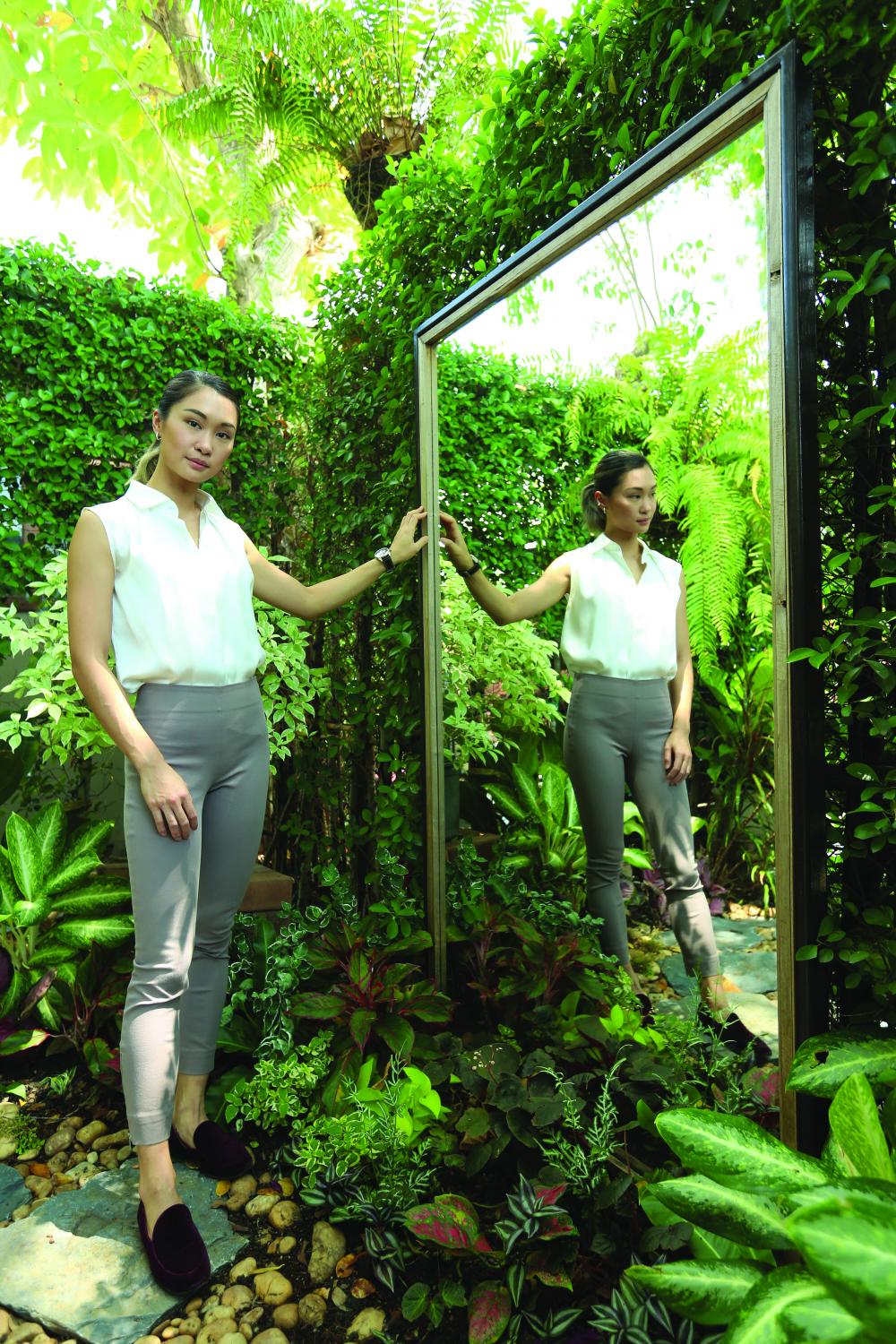After being crowned the winner of the premiere season of Top Chef Thailand, a reality television series that features chefs competing against each other in a multitude of culinary challenges, Chudaree "Chef Tam" Debhakam followed up her initial success with her own restaurant called Baan Tepa on Ramkhamhaeng Road. With its leafy surrounding, Baan Tepa, which is voted number 79 on Asia's 50 Best Restaurants 2021, feels like an oasis away from the busy road outside and, to say that Baan Tepa is just another restaurant is an understatement as Chef Tam uses it as her laboratory to discover new flavours, farm to grow her ingredients and gallery to showcase her edible art.
A Modern Chef
Chef Tam understands and embodies the many facets of what makes a modern chef today, taking many factors into account, including finding flavours, sourcing ingredients, managing day-to-day business, as well as educating consumers on where their food comes from and more.
"It was a bit of an accident," admitted Chef Tam, when asked about the discovery of her passion for cooking. "Food has always been at the centre of my family conversation at gatherings and dinners. One summer break during high school, my mother suggested that I do an internship in a kitchen and the environment really pushed me to do better and keep learning."
"Once I made a decision to be a full-time chef, I attended the International Culinary Center in New York City for six months and then worked at Blue Hill at Stone Barns in upstate New York for another two and a half years. The experience there completely pushed my boundaries as a chef," said the 28-year-old culinary artist.
Her time abroad and travelling experience help shape the chef that she is today: "I love exploring the world of ingredients, especially while travelling, trying to learn about different cuisines from different regions of Thailand. This is why I decided to have a garden as an extension of my kitchen. We started by figuring out what would thrive in this soil, environment, and weather, particularly herbs indigenous to this region."
To her, a chef is an intermediate between produce growers and diners. "It's a way to build a deep understanding of food and produce from step one, and bridge the gap between city dwellers and farmers by passing on the information to our guests. Our host and service team explain the background and stories of how the food is grown and made. Honestly, for me it's the best part of being a chef: interacting with diners, walking them through the garden, and appreciating the people behind the kitchen. It's truly heart-warming," said Chef Tam.
Stepping up to the plate
Just like other players in the dining scene, the global pandemic of Covid-19 has brought new challenges to her restaurant.
"We were massively affected," said the head chef of Baan Tepa. "We had just opened and I was always committed to the single 12-seat dining table in the kitchen because it creates such a unique, intimate dining experience for guests."
"However, guests are now more apprehensive about sitting next to each other. Moreover, with Thai culture not too fond about mingling with strangers, we had to move to a more practical setting featuring a larger and more private dining room or outdoor space and, at the same time, fine-tuning our menus."
It would be impossible for a Top Chef fan to not notice Chef Tam's natural poise in the competition as she navigated through many challenges throughout the competition. She is facing the biggest one yet, during this unprecedented time, but she pushes on, no matter what.
"I'm often asked to give some advice to aspiring chefs. I always say that it takes discipline to push for and work toward your goal in order to last and make an impact in the industry. Working in a kitchen is not an easy occupation; it's long hours and physically demanding. You have to keep learning, pushing, evolving, and then you'll be okay."
"However, Covid-19 taught me a lesson about versatility," recounted Chef Tam. "It's taught me how to stay realistic and adapt. Most importantly, I've learned to let go. I really loved the 12-seat concept and refused to let it go for a bit. But ultimately I came to understand how to grow by making the changes you have to make."
Sustainability is philosophy
Besides her passion and culinary wizardry, an equally impressive element of her kitchen, if not more, is her emphasis on sustainability.
"We're not following a trend; sustainability is our philosophy, our core," she enunciated.
"We work closely with our producers and have a lot of communication with them as to what they can grow and what can be used on the menu. When you're involved in every step of the food chain, you see it from the seed to the harvest. You understand how much time and effort is required. It's simply that 'Oh my god, it took so long [to grow produce], why would we want to waste it'."
She further explained: "Every restaurant knows how much waste we generate. So before I put something in the bin, I ask myself 'Can I try to do something?' or 'How can I give value to this seemingly unimportant piece of food?' At the same time, this has the added advantage of making me a more creative cook."
Striving for unforgettable flavours, with an environmentally-conscious mind, and a determination, Chef Tam seems to have all that it takes to become a modern-day chef. It shouldn't be such a surprise to learn that the first winner of Top Chef Thailand was only 24 at the time and the youngest in the competition.
"I do strive to be a pioneer in my field," she said. "It's important to push my boundaries in terms of how far I can take Thai cuisine and Thai ingredients, how hard I can push my customers to taste new menus and how much can I elevate my food with new techniques and new perspectives from other cuisines."
"I approach each dish on the basis of showcasing, highlighting, or shining the spotlight on lesser-known ingredients, giving guests something they've never tried before."
Time is the secret ingredient
Cooking is an art form. Different elements come together to deliver a delicious, mouthwatering and eye-catching result. Ingredients as paints. Plates as canvases. Chefs as artists. Cooking methods as art techniques. But time is a unique factor in culinary art and its secret ingredient.
"Time is one of the most important things when running a restaurant. Everything is governed by time. With a limited amount of it, everything has to be done in a timely manner. We have to understand the timing of each ingredient and the science behind it; some need more, some need less, some need to be precisely controlled.
"Moreover, each ingredient and preparation has its own timing necessary to achieve its perfect state. We just need to find that sweet spot. Timing and accuracy are crucial in my kitchen; that's why Longines Spirit is my choice of watch -- it embodies the spirit of pioneers like Amelia Earhart, who once said 'Never do things others can do and will do if there are things others cannot do or will not do.' I feel like that's what I strive to do [through Baan Tepa]."
Despite her obvious love of exploration and experimentation and her broad range of culinary interests, Chef Tam emphasised that her version of gourmet food is Thai at heart.
"It's a question of how I perceive and have a passion to develop Thai food. The techniques help to determine the guest experience and how I want guests to feel. It's our own take on Thai cuisine; not about fusing other cuisines with Thai. Our food is from Thai producers, grown by Thai people in Thailand and prepared and cooked by Thai chefs. I don't see anything fusion about that!"
If you are curious to taste responsibly prepared dishes that are, in Chef Tam's own words, "colourful, nutritious, and delicious", make a reservation at baantepabkk.com or contact reservation@baantepabkk.com or call 098-696-9074. Find Baan Tepa Culinary Space's location on Google Maps with g.page/BaanTepaBKK.

